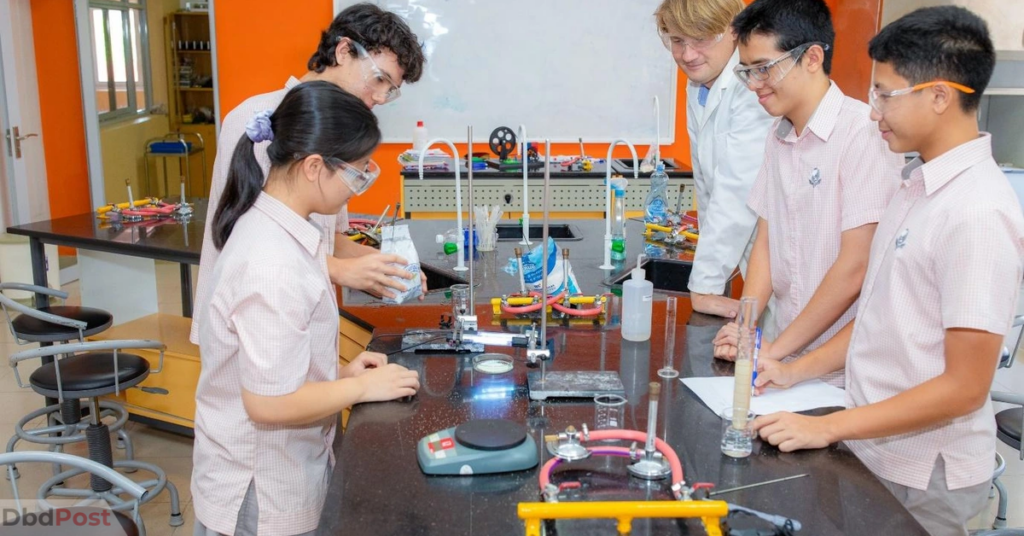A team of high school students from Thailand won global recognition. They secured the ‘Best in World’ title in the 2024 Cambridge Science Competition. Their innovative project aims to tackle the global water crisis.
The students from Anglo Singapore International School developed an atmospheric moisture condensation system. It extracts water from the air. Their idea stood out among hundreds of entries worldwide.
ZiKe Huang, Tan Hiranwat, Jintaporn Seemunta, and Kunathorn Jesdaviriya worked on this groundbreaking project. They focused on using a refrigeration pump, cooling module, and collection surface.
Their system efficiently condenses atmospheric moisture into safe, drinkable water.
The resulting water meets high safety standards. It has a neutral pH of 7, a low salt concentration, and no detectable bacteria. Its mineral content is comparable to distilled water, making it suitable for consumption.
Judges praised the students for their scientific rigor. They admired the team’s professional approach and problem-solving mindset. The project impressed the panel with its potential for real-world applications.
Rod Smith, Cambridge’s Group Managing Director for International Education, applauded the team’s success and emphasized the importance of young minds tackling real-world challenges.
He also said that this competition fosters scientific curiosity and innovation.
The Cambridge Science Competition targets students aged 14 to 16. It encourages independent scientific investigations that align with the Cambridge IGCSE and O Level curricula.
The 2024 edition attracted a record-breaking 308 teams from across the world.
Several other schools earned recognition for their outstanding work. Awards were distributed in different categories, highlighting innovation and excellence. Each project reflected a commitment to scientific advancement.
Nahar International School in India won the Engineering category. Their project showcased cutting-edge engineering solutions, and the judges commended their originality and practical approach.
The Aga Khan School in Dhaka, Bangladesh, won the sustainability category. Their research focused on environmental conservation and sustainability, and their work stood out for its long-term impact.
The competition also honored the best projects in different regions. Shine Ue School in Mongolia won for East Asia, and Surabaya Cambridge School in Indonesia claimed victory for Southeast Asia and the Pacific.
CMS Cambridge Gomti Nagar Extension Lucknow, India, won the South Asia title. Each school demonstrated excellence in scientific inquiry, and its research highlighted pressing global concerns.
In addition, several schools received country-level awards. Singapore School Kelapa Gading won for Indonesia. Jayshree Periwal International School earned top honors in India.
St. Joseph’s Institution International School secured the title for Malaysia. These schools produced exceptional research, and their dedication to science and innovation was evident in their projects.
The Anglo Singapore International School team’s success inspires. Their project proves that young scientists can create impactful solutions, and their work highlights the importance of sustainability and scientific progress.
Water scarcity remains a significant issue worldwide. Climate change intensifies this problem, making innovations like this crucial. Finding reliable sources of clean water is more important than ever.
Scientific competitions like this encourage students to think critically. They promote creativity, problem-solving, and collaboration. These skills are essential for the next generation of scientists and engineers.
Students and educators interested in the competition should start preparing early. Research, experimentation, and collaboration are crucial, and creativity and perseverance are key to success.
Cambridge International urges more students to participate. The competition is a platform for young innovators, fostering talent, scientific curiosity, and a drive for change.
The scientific community eagerly watches these young minds. Their ideas could lead to real-world solutions, and their research might shape the future of sustainability.
These young innovators have shown what is possible. Their achievements reaffirm the importance of science in solving global issues, and the world looks forward to their future contributions.
- 107shares
- Facebook Messenger
About the author
Andy Cale is a seasoned journalist and commentator with over a decade of experience covering global news and events. He specializes in delivering insightful opinions and in-depth analysis on current affairs, shedding light on the key issues shaping our world today.





